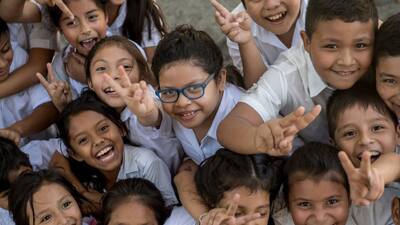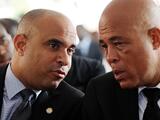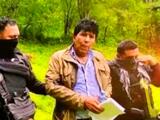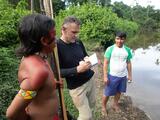Confusion as Central America braces for $700 million US aid cut, and Congress prepares for battle

President Trump’s decision to cut off aid to the three so-called Northern Triangle countries sent shock waves through the region at the weekend, as well as a good deal of confusion over exactly what the impact might be.
Experts involved in running some of the affected programs expressed dismay over the unprecedented step which many experts say will likely be counter-productive, causing greater hardship in Central America and consequently more migration. While the Trump administration alleges that the governments of Honduras, Guatemala and El Salvador are “not effective partners in our effort to curb migration,” experts cite evidence indicating the success of U.S. funded programs to combat gang violence and create jobs, two of the principal ‘push factors’ of the human exodus.
“A lot of our goals are similar to the current administration,” said Ken Baker, the head of one of the affected groups, Glasswing International, which relies on the U.S. government for 35 percent of its funding for the community education and health projects it runs in the three countries named by Trump. “We want people to stay and be safe and thrive in their own countries. We are really trying to tackle the problem at the root, at where the problem is. Once you are at the border, talking about policy in the U.S., it’s too late. The problem is down there.”
Glasswing employs 220 people in the region and has more than 20,000 students enrolled in after-school programs in vulnerable communities. A study of its extra-curricular programs by Chilean academics found that it improved student grades and behavior as well as reducing juvenile crime and violence “while fostering a greater sense of belonging, as well as more school and community pride through competitions and inter-school activities.”
While Trump told reporters on Friday that his decision affected about $500 million in State Department funds approved by Congress for 2017 and 2018, it also effectively canceled at least another $200 million in funding for 2019 which was passed by Congress in mid-February. The action came after Trump also threatened to shut down the US-Mexican border after Customs and Border Protection officials say they have reached a “breaking point”, predicting more than 100,000 illegal immigrants will cross into the U.S. this month.
Doubt swirled in Washington on Monday over how far-reaching the cuts were, and whether they were limited to what insiders call ‘soft-side’ spending on area like health and education, or whether they also included ‘hard-side’ funding for police, counter-narcotics and border security efforts which also come out of the State Department budget.
Other funds are dedicated to fighting corruption and training the police and judiciary.
“Cutting the aid doesn’t punish the governments, it punishes the people,” said Carlos Hernández, executive director of the Association for a More Just Society (ASJ), a Honduran civil society group which also gets 35 percent of its funding from the United States. He pointed out that due to widespread public corruption in Central America, about 90 percent of U.S. funding is channeled through non-profits groups, churches and private organizations. The money is tied to strict conditions and audits.
"Absolutely unprecendented"
Congress is expected to hold hearings on the aid cuts and a battle with the White House is likely. “It’s still very early. They (the Trump administration) are doing something absolutely unprecedented,” said one congressional staffer who asked not to be named. “We don’t know what authority they are exercising in order to carry this out,” he added.
“I am sure this this is going to end up in a battle between Congress and the president,” said Adriana Beltrán who monitors violence prevention, and police and judicial reform in Central America for the Washington Office on Latin America, a U.S.-based policy watchdog. “It is Congress that holds the ‘power of the purse,’ over the budget,” she added.
The White House has not said how the cuts are to be implemented, apparently heeding a rule that requires a seven-day consultation period with Congress, and bars public comment.
Going back to the 1940s, the United States has contributed billions of dollars in foreign assistance to Central America, one of the poorest, most corrupt and violent regions of the world. In the 1980s the U.S. became involved in the region’s civil war that cost 200,000 lives, while millions more were forced from their homes, many migrating to the United States.
New strategy
In 2016, after decades of ignoring the region, a bipartisan agreement, known as the U.S. Strategy for Engagement in Central America, was forged in 2016 and new funding approved. But, over the past two years, the Trump administration has sought to reduce foreign aid significantly and refocus it on U.S. domestic concerns, such as immigration and drug smuggling.
While most criticism of Trump’s decision predictably came from Democrats, one Republican spoke out Monday to defend the work of the U.S. Agency for International Development (USAID), a branch of the State Department that handles a large share of the foreign aid budget.
“It’s going to have a very big effect. This aid is vital to keeping these countries afloat,” said Adolfo Franco, a Republican former head of USAID under George W. Bush. “It would be like eliminated social security or Medicare in the United States,” he added.
Michael McCaul, a Texas Republican, told an event at the Wilson Center in Washington DC on Monday: “I think some people haven’t studied the issues or haven’t been down there and don’t understand what that foreign aid actually does.”
McCaul visited El Salvador with several colleagues at the weekend where they were briefed on “successful” efforts to reduce gang violence through U.S.-funded community policing.
"Great return on our investment"
“It’s a real easy thing to say, ‘look they’re sending migrants so just cut off their foreign aid.’ The fact is …. what USAID is doing is rerouting at-risk youth into training, into computer science, away from MS-13,” McCaul said, referring to one of the country’s most feared gangs that has tentacles in the United States. “I think it’s a great return on our investment. If you can stabilize those nations, then you can take the root causes of the problem away. If we cut all this funding, a lot of this is serious law enforcement money, it’s going to make things worse, not better.”
Migration has fallen significantly in El Salvador in recent years as crime has dropped, but that has been more than offset by a rise in people leaving Honduras and Guatemala.
Although Congress first appropriated funding for its new Central America strategy more than three years ago, "it is too early to assess the full impact of the initiative," according to a January report by the Congressional Research Service (CRS).
A 2014 impact evaluation report of USAID’s longer term community-based crime and violence programs found it was a success “in several key respects,” including a significant reduction in crime, and increased citizens’ sense of security, a decrease in gang presence, greater satisfaction with police and strengthening of democratic values.
Some 51 percent fewer residents reported being aware of murder, extortion and blackmail, 35 percent fewer reported avoiding dangerous areas because of fear of crime, 25 percent fewer reported being aware of illegal drug sales and 14 percent fewer perceived youth in gangs as a problem.
"It takes time"
Many fear that the gains that have been made will be lost as a result of pulling the plug on the funds. “To make change it takes time,” said Baker, a New Yorker who lives in El Salvador and set up Glasswing 12 years ago with his Salvadoran wife. “You have to build up programs in public school, build trust in communities. The last thing you want to do is abruptly pull out as that destroys any trust you have earned,” he said.
He remained hopeful that Congress will be able to force the White House to take another look at the aid programs. “One of the misnomers out there is that migration is positive for these countries and the governments don’t do enough to prevent it. But they face big challenges,” Baker said.
“They really do work with us. The U.S. is a good friend to these countries and they see the benefits of working with the U.S.” he added.



